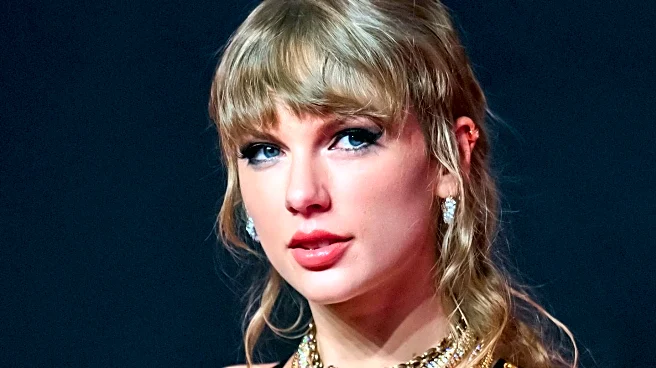What's Happening?
Taylor Swift has announced her 12th studio album, 'The Life of a Showgirl,' and is releasing it on cassette, a format popular in the 1980s and early 1990s. This move is part of a broader trend where artists like Harry Styles, Olivia Rodrigo, Billie Eilish, Lady Gaga, and Lana Del Rey have also released music on cassette. The revival of cassette tapes has been noticeable since the early 2020s, with sales jumping by almost 400,000 units in the U.S. from 2015 to 2023, according to entertainment data firm Luminate. Gen Z is leading this trend, driven by nostalgia and the desire for physical music ownership.
Why It's Important?
The resurgence of cassette tapes highlights a shift in consumer behavior, particularly among younger generations who are increasingly valuing physical media. This trend could impact the music industry by encouraging artists to offer more physical formats, potentially increasing revenue from merchandise sales. It also reflects a cultural nostalgia, influenced by media like 'Guardians of the Galaxy' and 'Stranger Things,' which romanticize past decades. The revival of cassettes may also affect how music is marketed and distributed, as artists seek to connect with fans through tangible products.
What's Next?
As the trend continues, more artists may choose to release music on cassette, potentially leading to innovations in cassette design and packaging. Music retailers might expand their offerings to include more cassette tapes, and manufacturers could see increased demand for cassette players. The industry may also explore new ways to integrate digital and physical music experiences, catering to the preferences of Gen Z consumers. Additionally, the trend could inspire other retro formats to make a comeback, further diversifying the music market.
Beyond the Headlines
The cassette revival raises questions about sustainability, as the production of physical media can have environmental impacts. It also touches on the broader cultural phenomenon of nostalgia, where younger generations seek connections to past eras. This trend may influence other industries, such as fashion and technology, as they capitalize on retro aesthetics. Furthermore, the desire for physical ownership in a digital age reflects a deeper societal shift towards valuing tangible experiences and products.









